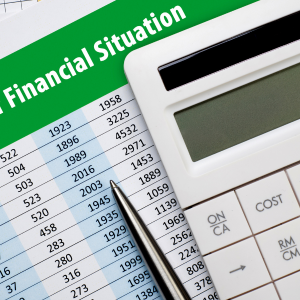
Can You Sell a House With a Mortgage in North Carolina?
Yes, you can sell a house with a mortgage in North Carolina. Many homeowners do this before their loans are fully paid off. Knowing the steps and factors involved can help make the process easier.

Factors Affecting the Sale
Several factors can impact the sale of a house with a mortgage:
- Market Conditions: The NC housing market’s current state affects how fast and profitably you can sell.
- Home Equity: This is the difference between your home’s market value and mortgage balance. It impacts your financial return from the sale.
- Interest Rates: Current rates might influence potential buyers’ interest, affecting your sale.
- Lender Approval: If the sale price exceeds your mortgage balance, your lender must approve it.
Steps to Selling a Mortgaged Home
To successfully sell your home with a mortgage, follow these steps:
- Evaluate Your Mortgage Payoff: Know your mortgage payoff amount to ensure the sale covers it.
- Work with a Real Estate Professional: An agent familiar with NC home sales can guide you.
- Understand Your Legal Obligations: Be aware of the legal requirements in North Carolina to avoid issues.
- Proceed with the Sale Process: Follow the necessary steps for an NC home sale that complies with state laws.
Role of the Mortgage Lender
Your mortgage lender plays a key role in the sale:
- Lender Communication: Stay in touch with your lender about your plan to sell.
- Mortgage Balance: Keep track of your mortgage balance and request a loan payoff statement.
- Lender Involvement: Some sales need lender approval, especially if considering a short sale.
Legal Obligations When Selling
Understanding legal obligations is important:
- Legal Framework: Know North Carolina’s rules for real estate contracts.
- Disclosures: Provide all required disclosures to buyers per NC regulations.
- Attorney Role: Consult an attorney to ensure compliance with legal requirements during the sale.
What to Expect During the Process
Here’s what typically happens when selling your home:
- Closing Process: This involves escrow and title transfer to finalize the sale.
- Inspections and Appraisals: Buyers may want inspections and appraisals to verify the home’s value.
- Negotiations: Be ready to negotiate on price and other sale terms.
What Are the Necessary Steps to Prepare for Selling?
Getting ready to sell your home involves several steps:
Assessing Your Financial Situation

Check your finances to make informed choices:
- Consult a Financial Advisor: Evaluate your financial health, credit score, and refinancing options.
- Assess Your Mortgage Balance: Know your remaining balance and financial responsibilities.
Preparing Your Home for Sale
Make your home attractive to buyers:
- Home Staging: Present your home well through staging.
- Repairs and Curb Appeal: Fix any issues and enhance curb appeal to attract buyers.
- Property Valuation: Get a professional valuation to set a fair price.
Documenting Your Mortgage Details
Have all documents ready:
- Mortgage Statement: Gather important loan details and payoff information.
- Documentation: Keep accurate records to streamline the sales process.
Understanding Market Conditions in North Carolina
Stay updated on market trends:
- NC Real Estate Market: Research current housing prices and trends.
- Seasonal Factors: Think about how seasonal changes might affect your home sale.
Selling a house with a mortgage in North Carolina can be more manageable if you understand the process and prepare well. For further guidance, consult a real estate professional or a financial advisor.
How Does Selling Affect Your Mortgage?
Managing the mortgage is important when you sell your home in North Carolina. Knowing how your mortgage balance affects the sale is key. During a home sale, you need to know how to pay off your mortgage. Your mortgage lender must approve the sale for a smooth NC house transaction.
Calculating Your Remaining Balance

Review your loan payoff statements to determine your remaining mortgage balance during your NC home sale. Understanding these statements helps you settle your home loan correctly when selling in North Carolina.
Paying Off the Mortgage After Sale
After selling your house in North Carolina, you must pay off the mortgage. A vital part of this process is getting a mortgage payoff statement. This document shows the exact amount needed to clear your mortgage debt. It ensures compliance with the North Carolina house sale mortgage process.
Understanding Loan Payoff Statements
Loan payoff statements are key documents in the selling process. They show the amount needed to pay off your mortgage. Consulting a financial advisor can help you understand these, especially considering any tax implications when selling a mortgaged house in NC.
Impact on Credit Score
Selling your home can affect your credit score, especially if you release equity during the NC house sale. Understanding refinance options after selling or planning your next purchase helps maintain strong homeownership.
What Are Short Sales and Are They Right for You?
Short sales might be a solution if you’re struggling with a mortgage on a North Carolina property. Selling an underwater mortgage home in NC requires meeting specific criteria for short sale eligibility, like financial hardship and lender approval.

Criteria for Short Sale Eligibility
Short sale eligibility involves several factors. These include working with your mortgage lender, understanding the legalities of selling a mortgaged home in NC, and addressing any existing mortgage lien when selling your NC home.
Advantages and Disadvantages of Short Sales
Short sales have pros and cons. While they might allow for equity release during an NC house sale and offer relief from a high mortgage balance, they could also impact your credit score or limit future buying power.
Communicating with Lenders for Approval
Talking with lenders is important for getting approval for an NC house sale. Proactively negotiating the payoff mortgage terms helps make the selling process smoother. Early communication is critical.
Timing and Execution of Short Sales in NC
The timing and execution of short sales in North Carolina depend on various real estate mortgage conditions. Understanding these intricacies will help ensure the selling process goes smoothly.
What Are the Possible Pitfalls in Selling a Mortgaged Home?
Selling a mortgaged house can be tough, especially in North Carolina. Homeowners must follow specific regulations, but knowing these possible issues can make the process easier.
Common Challenges in the Selling Process
When you’re selling a mortgaged home, you might face several challenges:
- Real Estate Market Conditions: The market in North Carolina affects how fast and for how much you can sell your home.
- Timing of the Sale: It’s important to sell when the market conditions are favorable.
- Disclosures: You need to inform potential buyers about the mortgage on your home.
- Appraisal Issues: A correct appraisal is crucial to satisfy both the buyer and lender.
Dealing with Negative Equity
Negative equity means you owe more on your mortgage than your home’s value. It is also known as being “underwater.”
- Selling an Underwater Home: You might have to negotiate a mortgage payoff with your lender.
- Refinancing Options: If it offers better terms to manage your negative equity, consider refinancing options.
Addressing Legal Concerns
Legal issues are important when selling a mortgaged home in North Carolina.
- Legalities: Understand state laws that apply to mortgaged home sales.
- Attorney’s Role: An experienced attorney can help with legal procedures, like deed transfer and mortgage liens.
Are There Financial Relief Options Available in North Carolina?

If you’re a homeowner in North Carolina struggling financially, you may seek help. Thankfully, both state-specific programs and federal relief can provide needed support.
Exploring State-Specific Assistance Programs
North Carolina has several programs to assist homeowners with their mortgages:
- NC Mortgage Assistance: These programs aim to lower housing costs or give temporary financial aid.
- Refinance Opportunities: You might be able to refinance your mortgage at a lower interest rate.
- Seller Financing: This could be an option instead of traditional financing, offering more flexible terms.
- Consultation with a Financial Advisor: An expert can help create a plan that fits your needs in today’s housing market.
Federal Relief Programs Applicable to NC Residents
North Carolina residents can also access federal relief programs:
- Government Aid Programs: These might offer changes in mortgage rates and home loan support.
- Financial Support for Homeowners: Help might include lowering monthly payments or offering short-term relief.
- Tax Implications: It’s important to know potential tax benefits or costs when using these programs.
Alternative Financing Options and Refinancing
Looking into different financing options can be helpful:
- Mortgage Lender Consultations: Talk to different lenders, including banks and mortgage brokers, to find various financing paths.
- Interest Rate Comparisons: Comparing rates can help you find the best options.
- Home Equity Loans: Using your home’s equity can be an option if managed wisely.
How Does a Sale Impact Future Home Buying?
Selling your home can impact buying another home, especially regarding your credit score and buying strategy.
- Credit Score Considerations: Selling your home can change your credit, influencing whether you qualify for a mortgage later.
- Understanding the Real Estate Market: Knowing current trends can guide buying decisions.
- Expert Advice: Talk to real estate professionals to help with the selling and buying process.
Rebuilding Credit Post-Sale
After selling a home, improving your credit score is key for future financial actions:
- Engage with Financial Advisors: They can suggest ways to boost your credit history.
- Focused Money Management: Proper use of loans and credit cards helps restore credit.
- Regular Credit Monitoring: Keeping an eye on your credit score lets you spot improvements and areas needing work.
Advice on Saving for Future Purchases
Saving well can make buying another property easier:
- Financial Planning: Make a solid budget considering your income, expenses, and savings goals.
- Expert Advice and Tips: Get tips from financial experts to improve savings and investment plans.
- Investing Wisely: Look into investment options that match your long-term plans.
Timing Your Next Purchase After Selling
Timing is key when planning your next home purchase:
- Understanding the Real Estate Market: Study market conditions to choose the right buying time.
- Strategic Planning: Consider housing prices and negotiation strategies to get good terms.
- Evaluate Your NC House Sale: Reflect on your last sale to guide your next purchase approach.
Homeowners can find helpful insights for dealing with mortgage issues by exploring these sections. Taking active steps and making informed choices can make a big difference.
What Legal Considerations Should Be Kept in Mind?

Understanding the legal steps when selling a home with a mortgage in North Carolina is important. Homeowners need to know their obligations and how they might affect the sale. This includes familiarity with the mortgage terms and state-specific rules for selling a mortgaged home. Following the correct steps can help avoid problems during the sale.
Navigating the Legal Framework for Mortgaged Homes
To sell a property with a mortgage in North Carolina, you need to know the local regulations. Getting advice from a real estate attorney is helpful to ensure you comply with NC rules for selling mortgaged property. An attorney can guide you through the process, explain your obligations, and help you communicate with your lender. Their support can make for a smooth sale and help avoid legal problems.
Importance of Obtaining Legal Advice
Getting legal advice is vital when selling a home with a mortgage. A skilled attorney who knows North Carolina’s mortgage laws can protect your interests. They can help you negotiate with lenders and ensure all legal documents are correctly prepared and filed. This proactive measure reduces risks and helps ensure a legally sound transaction.
Key Documents Required During the Sale
When selling a mortgaged home in NC, you need several key documents:
- Mortgage Payoff Statement: Details the remaining balance, which is essential for closing.
- Deed Transfer: Must be properly executed to transfer ownership to the buyer.
- Title Insurance: Protects the buyer against future claims on the property.
An attorney plays a crucial role in managing these documents, ensuring accuracy, and guiding you through the sale process.
Why Is Acting Proactively Beneficial for Sellers?
Being proactive when selling a mortgaged home in North Carolina offers many benefits. Early communication with your lender and a real estate professional ensures everyone is aligned. This approach allows potential issues to be identified and resolved in time, making the process smoother and increasing the chances of a successful sale.
Importance of Early Communication with Lenders
Talking openly with your mortgage lender is important when selling a home in NC. By discussing your intentions early, you can understand their requirements, such as needing lender approval for the sale. Early communication helps address any concerns quickly, supporting a smoother transaction.

Taking Preventive Measures to Avoid Foreclosure
Foreclosure can severely impact your financial health. Taking preventative steps now, like consulting legal and real estate experts, can help you manage the complexities of selling a mortgaged home in North Carolina. Understanding and following the legal requirements helps protect you from the risk of foreclosure.
Long-Term Benefits of Timely Mistake Rectification
Acting quickly to fix mistakes when selling your house in the North Carolina housing market is critical. Checking refinance options or meeting homeowner obligations early can prevent future financial stress. Managing the sale process well protects your credit score and sets you up better for future real estate opportunities. Fixing potential issues early means you stay in control and avoid setbacks.
Following these guidelines, homeowners can confidently handle the sale of a mortgaged home, ensuring a legally compliant and financially beneficial outcome. For personalized advice, contact Cash Home Options for further assistance.
FAQs:
How do you sell a house with a mortgage in North Carolina?
Selling a house with a mortgage in North Carolina is common. First, talk to your mortgage lender to determine how much you owe. Then, work with a real estate professional who knows the North Carolina market to list your home. After you accept an offer, use the sale money to pay off the mortgage at closing. Make sure to understand all closing costs involved.
Can I sell my property in North Carolina if it’s still under mortgage?
Yes, you can sell your property in North Carolina even with a mortgage. You need a payoff statement from your lender to find out the remaining balance. At closing, the lender gets paid first, and any leftover money goes to you. This is a standard part of real estate transactions.
What are the options for selling a house with a high mortgage balance in North Carolina?
If your mortgage balance is high, you have some choices. You could consider a short sale if you owe more than your home’s value—discuss this with your lender. If possible, you might also refinance or work out terms like mortgage assumption with the buyer. Planning carefully and getting advice from a real estate expert is important.
Are there specific mortgage considerations when selling real estate in North Carolina?
Ensure your loan documents are ready in North Carolina before listing your property. Think about potential tax issues and talk to a real estate attorney. Understanding disclosures and closing costs is crucial. Sometimes, you’ll need mortgage lender approval, so communicate with them early.
How does a second mortgage affect the sale of a house in North Carolina?
A second mortgage needs attention during the sale too. Both the first and second mortgages must be paid off at closing. If the sale proceeds don’t cover both loans, you may need extra funds, negotiate with lenders, or consider a short sale. Consult professionals to manage these situations well.
What are the tax implications of selling a home with a mortgage in North Carolina?
There could be tax implications when selling a mortgaged home, especially regarding capital gains. If you profit from the sale in North Carolina, you might face taxes unless exclusions apply. Talking to a tax advisor to understand your case and any benefits or liabilities is a good idea.
Can I sell an inherited house with a mortgage in North Carolina?
Yes, you can sell an inherited house with a mortgage. You need to manage the existing mortgage, possibly by refinancing or paying it off with sale proceeds. Get guidance from a real estate professional and attorney to ensure smooth property transfer and compliance with North Carolina laws.
How do closing costs and timelines affect selling a house with an existing mortgage in North Carolina?
Closing costs include fees like title insurance, escrow, and agent commissions, affecting your net proceeds. Closing usually takes 30-45 days after accepting an offer, but an outstanding mortgage can slightly extend timelines, especially if lender approval is needed. Understand all financial obligations early.
Key Insights
- You can sell a house with a mortgage in North Carolina. Here’s how to deal with an existing mortgage, even if you owe more than your house is worth.
- Know your mortgage options when selling your house in NC. We can help you understand the real estate market and mortgage conditions in North Carolina. This includes things like equity release and transferring your mortgage.
- Understand the steps of selling a home with a mortgage. This covers paying off your mortgage, getting lender approval, and handling extra mortgages or liens in North Carolina.
- We provide tips on selling inherited or rental properties with mortgages in North Carolina. Make sure you’re following disclosure rules while maximizing potential profits and reducing taxes.
- Timing matters when selling a mortgaged home in North Carolina. We advise when to sell and how to manage closing costs, prepaid interest, and escrow.
- Learn about the process of selling a house with a high mortgage balance in North Carolina. We discuss contingencies, the role of realtors, and title insurance.
- If facing financial challenges, explore our resources on short sales and foreclosures in North Carolina. You can get practical advice and learn about assistance programs.
- Our selling guide covers relocation sales, marketing strategies, and understanding market trends in cities like Charlotte. We focus on helping sellers through changes and negotiations.
These findings apply across all of North Carolina, including Florida. Contact us at (813) 797-5316 to learn more or just fill out the form on our website.

